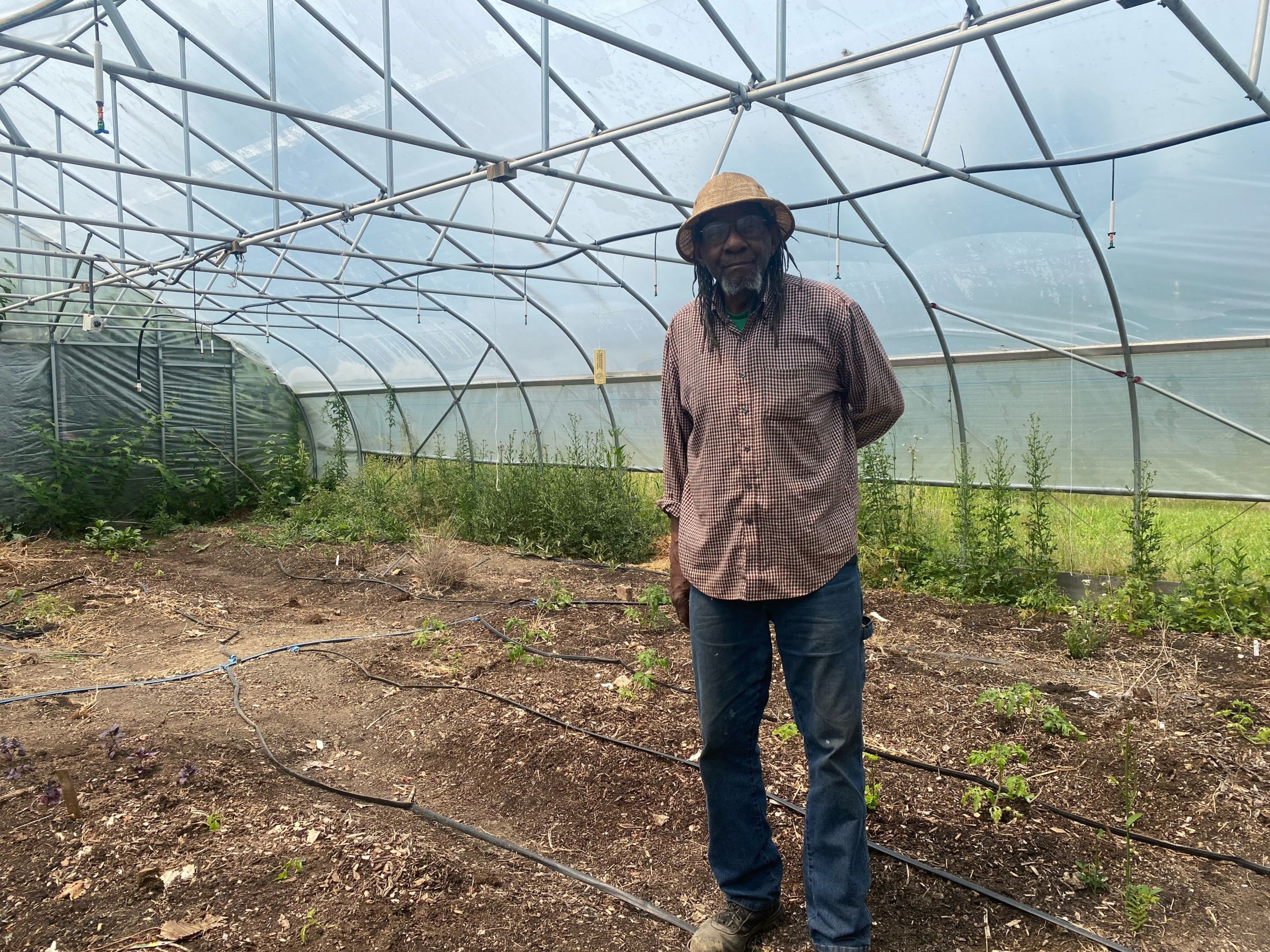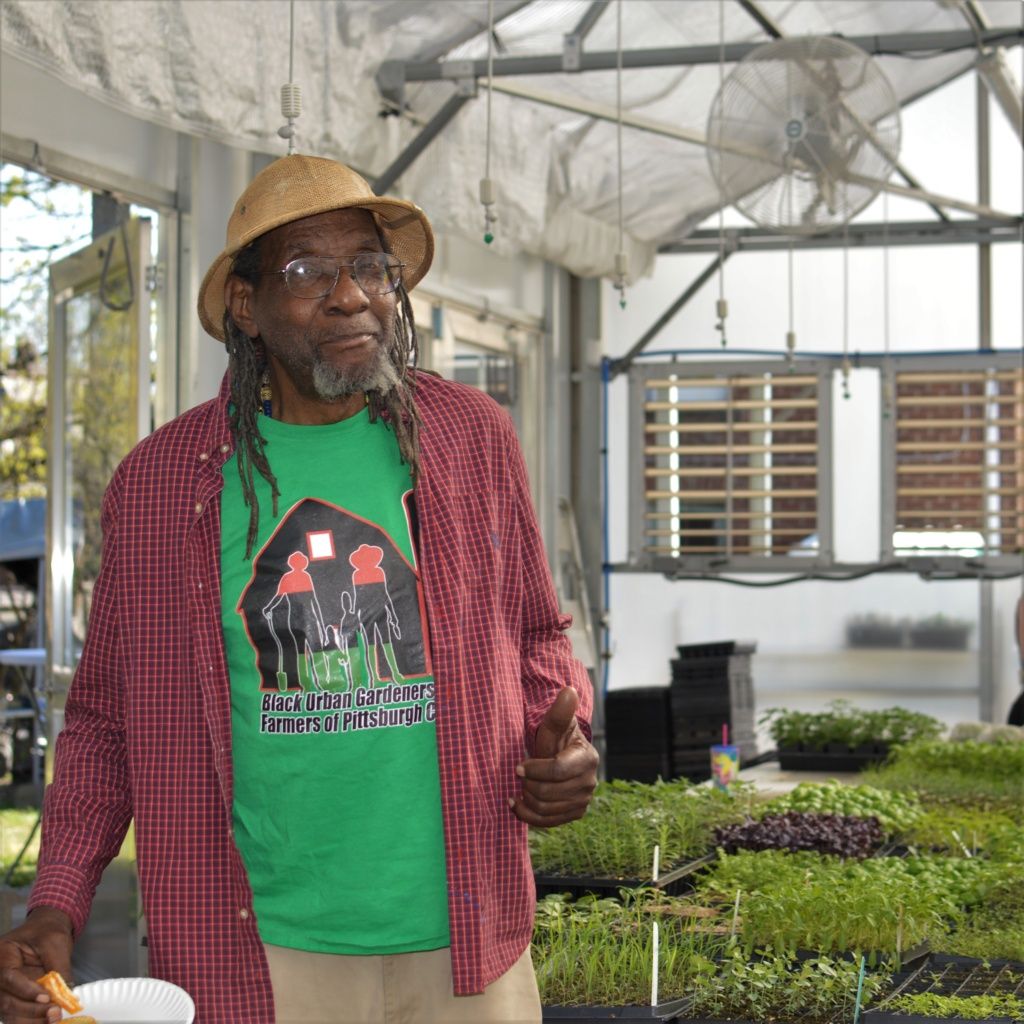This Grower’s Spotlight features Renee Wilson. Amir Rashidd, a lifetime gardener working in Pittsburgh garden spaces in many ways. Amir is a multidisciplinary artist, maker, and grower who believes song, folklore, painting, and other creative pursuits all have a place in a garden. Hear from Amir about his experience as a grower.
Grow Pittsburgh: Tell us a little bit about yourself
Amir: I am a multidisciplinary artist, maker, and grower. I enrolled in a program in 1986 at UConn, University Connecticut farming, and I became a specialist. I’m a painter and sculptor, and a musician. I liked the artistic climate here because it was cool, so I moved to Pittsburgh.

GP: When did you first begin gardening? How did you learn?
Amir: I’ve been a gardener all my life. I started gardening when I was seven years old with my mother in her backyard garden. Later, as a young adult, I worked with the city to identify vacant lots. Through that work I was able to help organize community gardens in those spaces for the community. During the summer we had bi-weekly workshops on farming and community gathering and preserving with the community in the garden.
GP: What’s your favorite thing to grow?
Amir: My mother taught me gardening and land stewardship has always been present in my life. I love to grow everything. Watermelon, cantaloupe, and multitude of peppers for homemade salsa. I also like to grow plants with a multitude of benefits, like mugwort.
GP: What is a lesson growing food has taught you?
Amir: Growing food means no one goes hungry. I integrate community based practices from my travels. Everyone has space to grow and share with their community. Sharing folklore and stories helps ground the work that needs to be done both in the past, with our ancestors, and in the present.
GP: Tell us about your work in you have done in community garden spaces
Amir: Through my travels, I started urban farming in Tanzania, Kenya, Cuba and Salvador, Brazil. I’ve worked in many community gardens in Pittsburgh including the Hill District, Uptown, Homewood, and Wilkinsburg. I want to prioritize the youth in the community and make sure they have space to learn and experiment. I’ve led and assisted building youth programming that makes it easier for kids to access gardening and growing. It gets them in touch with the earth, showing them how to plant their lunch.
GP: What are some lessons gardening has taught you? What are some challenges you’ve faced? Is there an anecdote or a story of a time you’ve had to overcome a gardening challenge?
Amir: I’ve traveled all over, to Cuba, Tanzania, and all over the United States. Through my travels I’ve brought back cultural practices and implemented them in the gardens I support in Pittsburgh. Using the technique of intercropping within the same garden bed instead of neat straight rows has allowed the gardens I work with to flourish through cooperation.
GP: Any advice for folks who are getting started with growing their own food?
Amir: Plan your work and work your plan. Meet your neighbors, get talking and see how you can work together so that everyone has enough to go around.
GP: What else do you want people to know about growing, yourself, anything?
Amir: My recommendation to build a raised bed: start with a foundation of chicken wire on the bottom, followed by cardboard. The chicken wire protects the bed from animals burrowing up and the cardboard acts as a good foundation for healthy compost. And watch out for groundhogs, they love soybeans.

